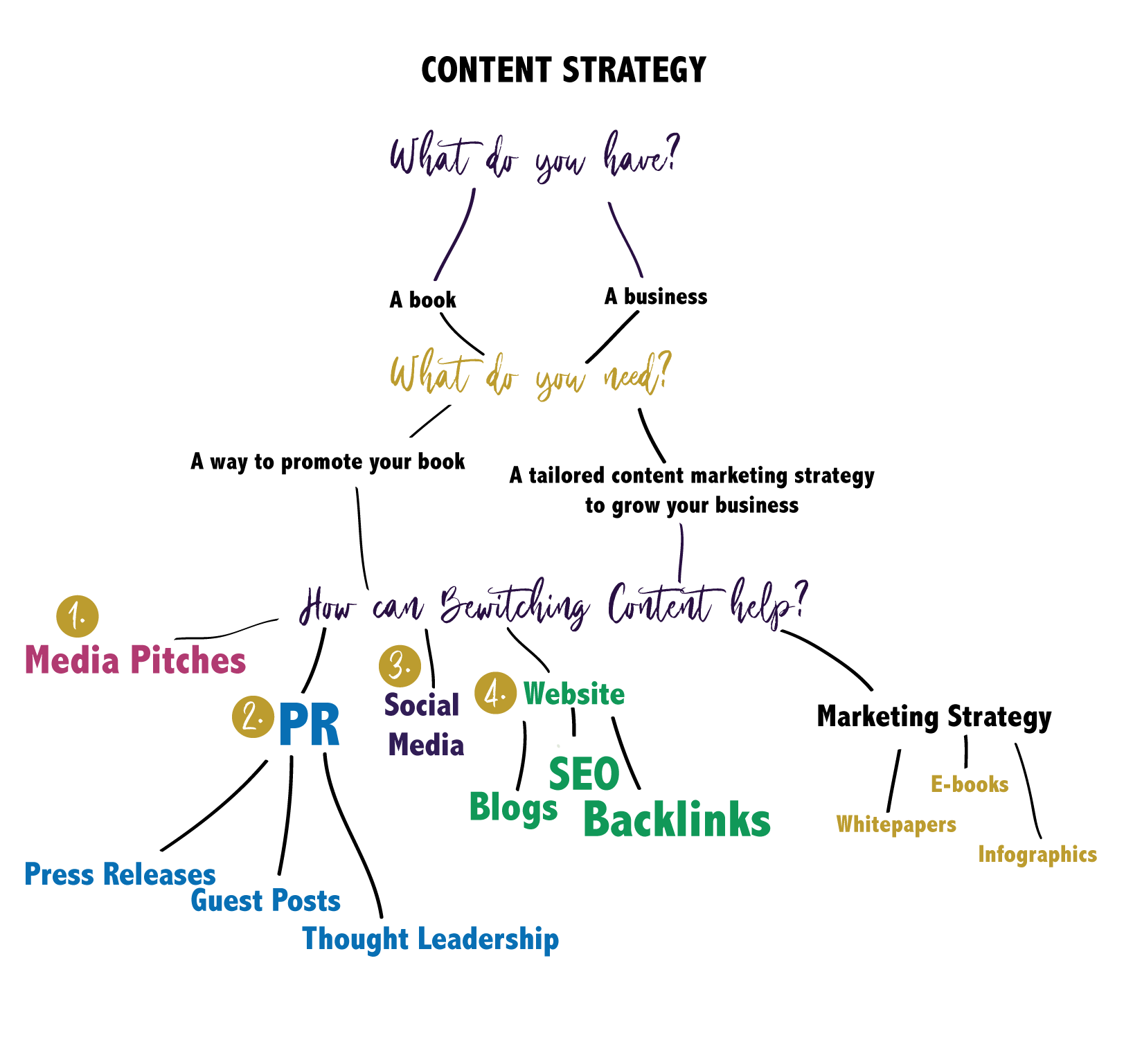
What Is Content Marketing?
One important form of inbound marketing and digital strategy is content marketing.
Content can come in many forms, from written content such as blogs and thought leadership articles or custom graphics. Content marketing is all about creating and circulating content.
The goals of content creation depend on your business goals.
Usually content marketing drives traffic to your business website, builds trust, converts audiences, earns new customers, and engages existing ones.
Content marketing arrived along with the internet. Businesses use charts, graphs, and product guides. When you create content, you want it to be helpful. Instead of giving potential customers a sales pitch, content marketing should provide value.
Of course, the best content marketing strategy for one business is not necessarily the best for another. With countless approaches and content types, it’s a highly customizable form of inbound marketing.
Are you a B2C business? Your content strategy might prioritize Facebook and Instagram.
Are you a B2B business? Content marketing can also be tailored to fit your specific needs. Long-term services with a higher price point might utilize LinkedIn articles and blog posts.

Blogs: A Trusted Content Marketing Strategy
Blogging is a marketer favorite. It’s common to use blogs to publish news, press releases, and company insight on the industry. You want to utilize blog content creation to establish your company as a thought leader and to engage with your current and potential customers.
Search engine optimization affects everyone. All of the information that you search for using a search engine is subject to the rules of SEO. Blogging is an important part of any content marketing strategy because of its ability to drive more traffic to your website. With every blog post, you can increase your ranking in search results and allow more customers to find your site. Of course, SEO is only one part of writing a blog. Instead of writing for search engines, you need to write for your customers and choose topics that are interesting and helpful. Blogging enables your business to share important information and knowledge with your target customers.

Social Media Posts
Although social media marketing is it’s own strategy, it’s also a part of content marketing.
It’s more impactful to coordinate social media marketing and content marketing as an inclusive strategy. When you think about it, each social media post is a piece of content with a distinct purpose.
With each piece of content, you not only want to keep in mind your target audiences’ needs, but what action you want them to take after interacting with your content.
Do you want them to learn about your business, read your blog, clink on a link, or share the post?
The message that you deliver is important to attaining your business goals.
Free Content
Take a look through your inbox these days. How many newsletters and free guides do you receive daily? The reason that all of these businesses supply you with free goodies is because content marketing is all about establishing trust. In exchange for your knowledge and wisdom, most customers are happy to provide an email address. This opens the doors of communication and starts your relationship off on the right foot.
The process is quite simple. You craft a piece of awesome helpful content based on keyword research and one of your target audience profiles. After you place that content on a landing page, viewers must fill out a form to access it. This helps you build your email list and starts you off with a customer relationship.
Content is not limited to blogs and newsletters. You can utilize how-to guides, e-Books, articles, whitepapers, checklists, and other forms of long-form content. Other forms of content marketing are infographics, video, images, and charts. No matter what you choose, it’s most important to first keep your audience in mind.
Creating great content takes time and effort. Sharp copywriting, design, and a dash of creativity are must-haves. Content management requires creative skills as well as data-crunching knowledge and tools. It’s important to know how to create content that can reach and engage your target audience.
What Are the Benefits of Content Marketing?
Most businesses and authors have websites and social media channels. Channels cannot run without content. You can build a beautiful website, but it won’t do you any good without traffic. Likewise, if you have active social channels with original content, you’re going to have a lot more leads than someone who only posts once a week. If you’re still considering investing in a content strategy, it’s understandable. Although it is a relatively inexpensive way to market your business, it is time consuming. It also might take a while before you see any results. The great thing about content is it can be repurposed, retooled, and reused. Once you’ve created it, it is there to stay! Using content management systems and digital marketing software will help you track your effectiveness and see results. Once you have a clear picture of what content is working (and what is not), you can adapt your content marketing strategy accordingly.
An effective and well-executed content marketing strategy will expand your website’s reach, improve brand awareness, build loyalty, trust, and authority, and convert leads for less money. And what’s best of all? You’ll delight more customers! A good content strategy helps you and your customers.
How Can Bewitching Content Help You?
Unless you have a marketing department to promote your book or business, you may want to consider engaging an agency for help. There are pros and cons to both in-house marketing departments and content marketing agencies.
Even if you do have a marketing department, Bewitching Content can help. We can take on the tasks that you don’t have time for. We’ve got the expertise and experience to deliver creative and engaging content to build your business.

